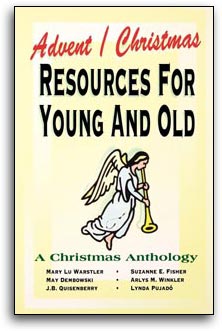SermonStudio
What Is His Name?
Pageant
Advent/Christmas Resources For Young And Old
A Christmas Anthology
Notes
This Christmas program is written for children or for the total congregation's participation. In its flexibility any congregation, regardless of its size, can experience anew the telling of the story of the birth of Jesus, as well as relate the Christmas story to today's world.
Characters
The characters in this drama include many or few, depending on the size of your congregation.
This Christmas program is written for children or for the total congregation's participation. In its flexibility any congregation, regardless of its size, can experience anew the telling of the story of the birth of Jesus, as well as relate the Christmas story to today's world.
Characters
The characters in this drama include many or few, depending on the size of your congregation.


